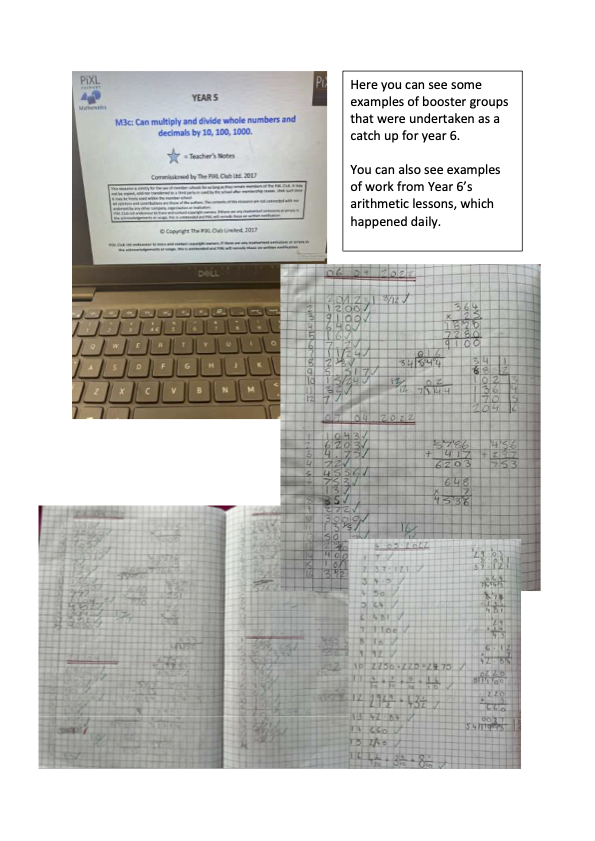Teacher feedback:
Do you feel arithmetic sessions benefit the children in Year 6?
Yes, regular (usually daily) arithmetic sessions are crucial for helping children develop and improve their arithmetic skills and the pace of their calculation work. It also helps them to make fewer basic errors in their work and take greater care to avoid doing so.
Do you feel the children who are attending booster sessions for maths are benefitting from these?
Yes, children attending maths booster groups are definitely benefitting. They show a positive attitude and a good understanding of the work covered. Over time, their scores on SATS arithmetic papers have all improved, although some obviously more than others.
Are there any barriers to this?
There are a few barriers: the first is that some children who would benefit don’t come, despite being encouraged to; the second is that some are missing the maths booster session on Thursdays after school because they prefer to go to an after-school club. To try and circumvent this, I’m also now doing a maths booster on a Tuesday too and several children are now coming to this session who have an after-school club on a Thursday.
Are children making progress in maths?
The overwhelming majority of children are making progress in maths and their scores are creeping up but not quite as much as we’d hoped in some cases, so it’s going to require a big push to get some to ARE in May. We have two months, so more lessons, more booster sessions and the time to go through the practice test papers they’ve done so they can correct their mistakes. The Pixl gaps analysis spreadsheet that we’ve used to input their arithmetic scores is clearly showing areas/questions where fewer children scored marks, so I can start to target these specific areas and cover them in more depth in the arithmetic sessions I plan from now on, particularly by looking at the breakdown of the ‘Target’ children’s scores.
Pupil feedback: Children were given a survey to complete at the beginning, vs the end of the school year.
Children reported higher levels of confidence in arithmetic, and in maths in general in our latest survey, vs the one we completed in September 2021.
Children in both surveys rated their arithmetic lessons as ‘helpful’ in helping them progress in their maths lessons.
Quotes from children in year 6 include: ‘Arithmetic helps you to warm your brain up, and helps us to revisit things you have already learnt so you don’t forget.’

